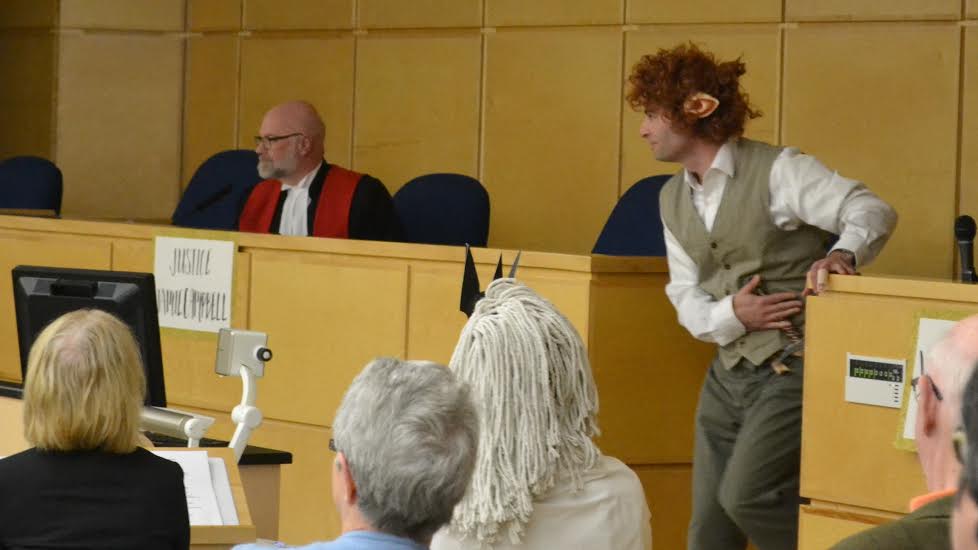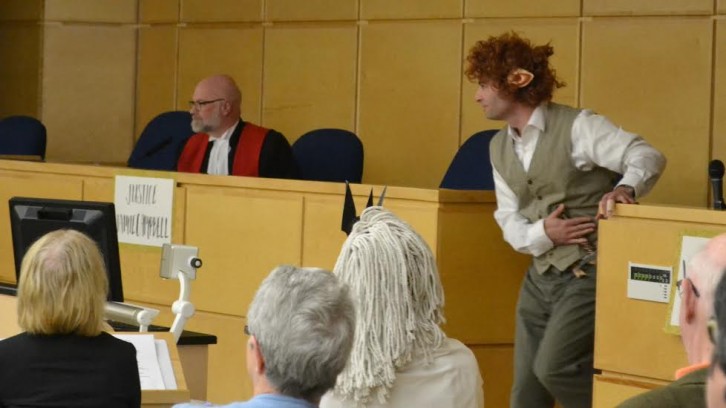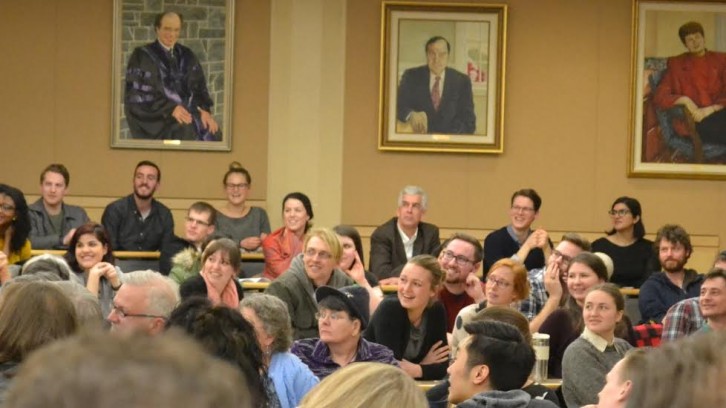Literary
Dalhousie law school puts Hobbit on trial
If there's one ring to rule them all, who owns it, literary mock trial asks

caption
Hobbit, Bilbo Baggins of the Shire, fights for ownership of the One Ring
caption
Hobbit, Bilbo Baggins of the Shire, fights for ownership of the One Ring“Ladies and gentlemen of the jury, humans, elves, half-elves, quartre-elves, dwarves, dragons, wizards …”
Lawyer Andrew Taillon opened the 6th Annual Weldon Literary Moot on Thursday in a very fitting way.
The mock trial took the novel The Hobbit by J. R. R. Tolkien, and pitted Bilbo Baggins and Gollum against each other to find out who would have a better claim for possession of the ring.
The event was a fundraiser for Halifax Humanities 101 — a program that makes university humanities available to everyone, regardless of financial or social barriers.
Jamie Campbell, a Nova Scotia Supreme Court justice, presided over the case. Comedian and magician Bill Wood was Gollum.
“Through the course of the evening you will learn one thing,” said Campbell. “When lawyers are allowed at a piece of literature, they can not help but tear out its soul.”
The characters Gandalf and Smaug the dragon made appearances, and the audience was in fits of laughter throughout the trial.

caption
Audience members were entertained.“Objection! She is badgering – correction – dragoning the witness,” lawyer Laurie Jones said about Smaug, played by Dalhousie law professor Diana Ginn.
In the end, the jury favoured Bilbo and his team won the night.
The annual literary moot is one of the biggest nights of the year for Halifax Humanities 101. The organization provides all reading materials and guidance from university professors, at no cost to those living below the poverty line.
“We are an entirely fundraised organization,” said Mary Lu Redden, director of the group.
The literary trial uses a novel from the Halifax Humanities 101 curriculum. Past trials have been based on Alice in Wonderland, Pride and Prejudice and Frankenstein.
“I think that teaching the humanities to anyone who wants to learn regardless of privilege is a wonderful cause. Deep human thought should not just be for the privileged,” said Wood.
